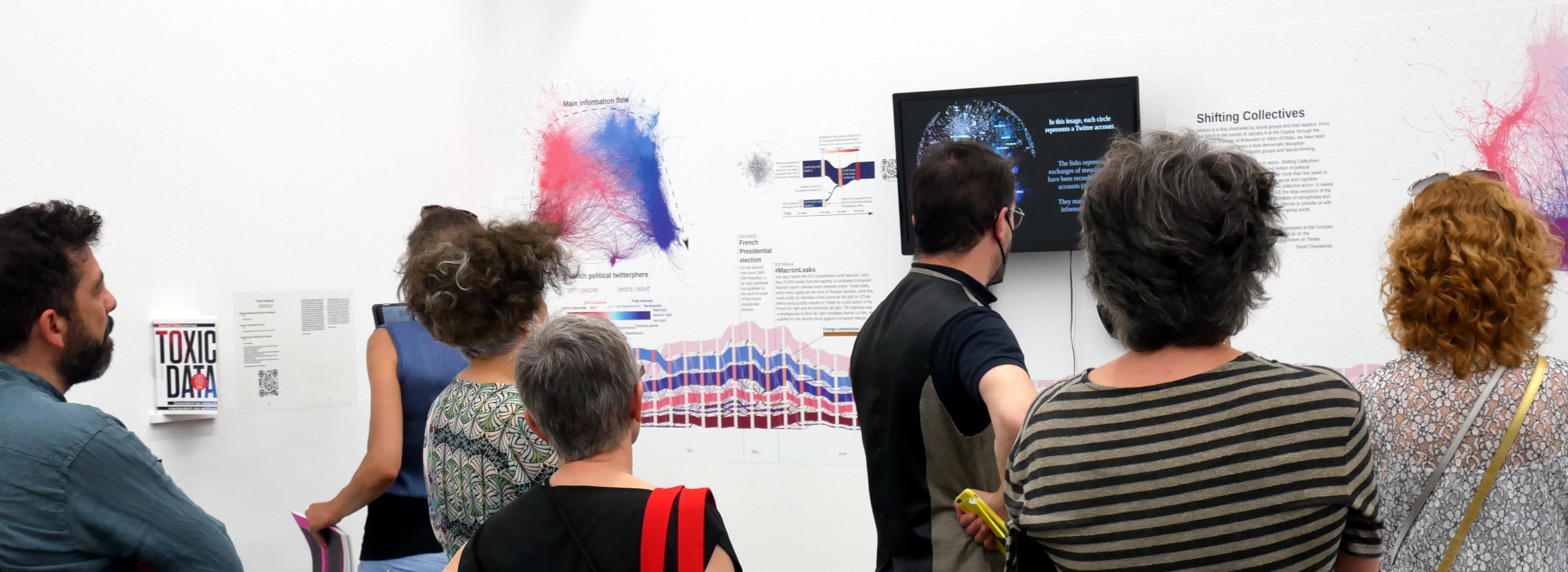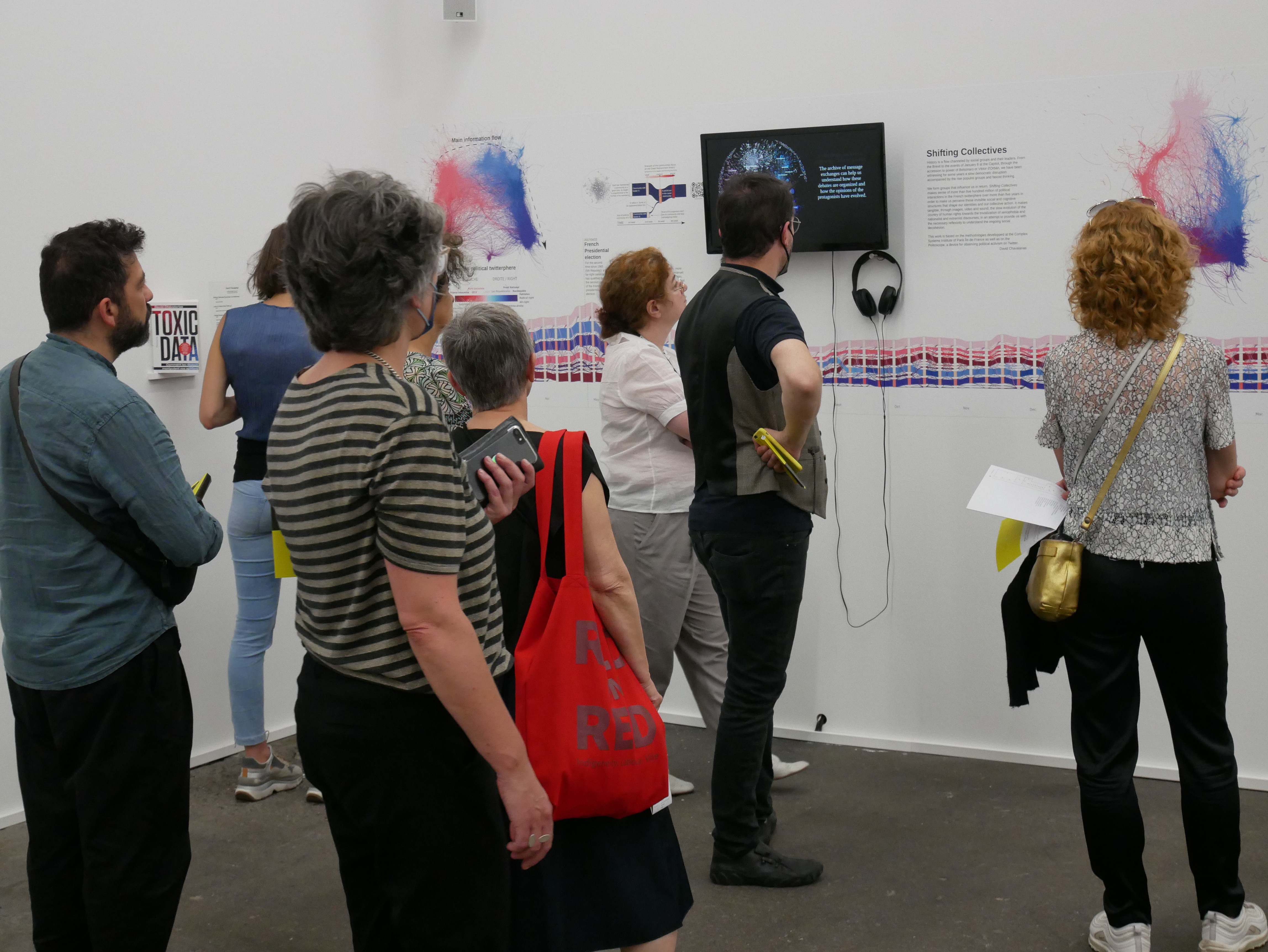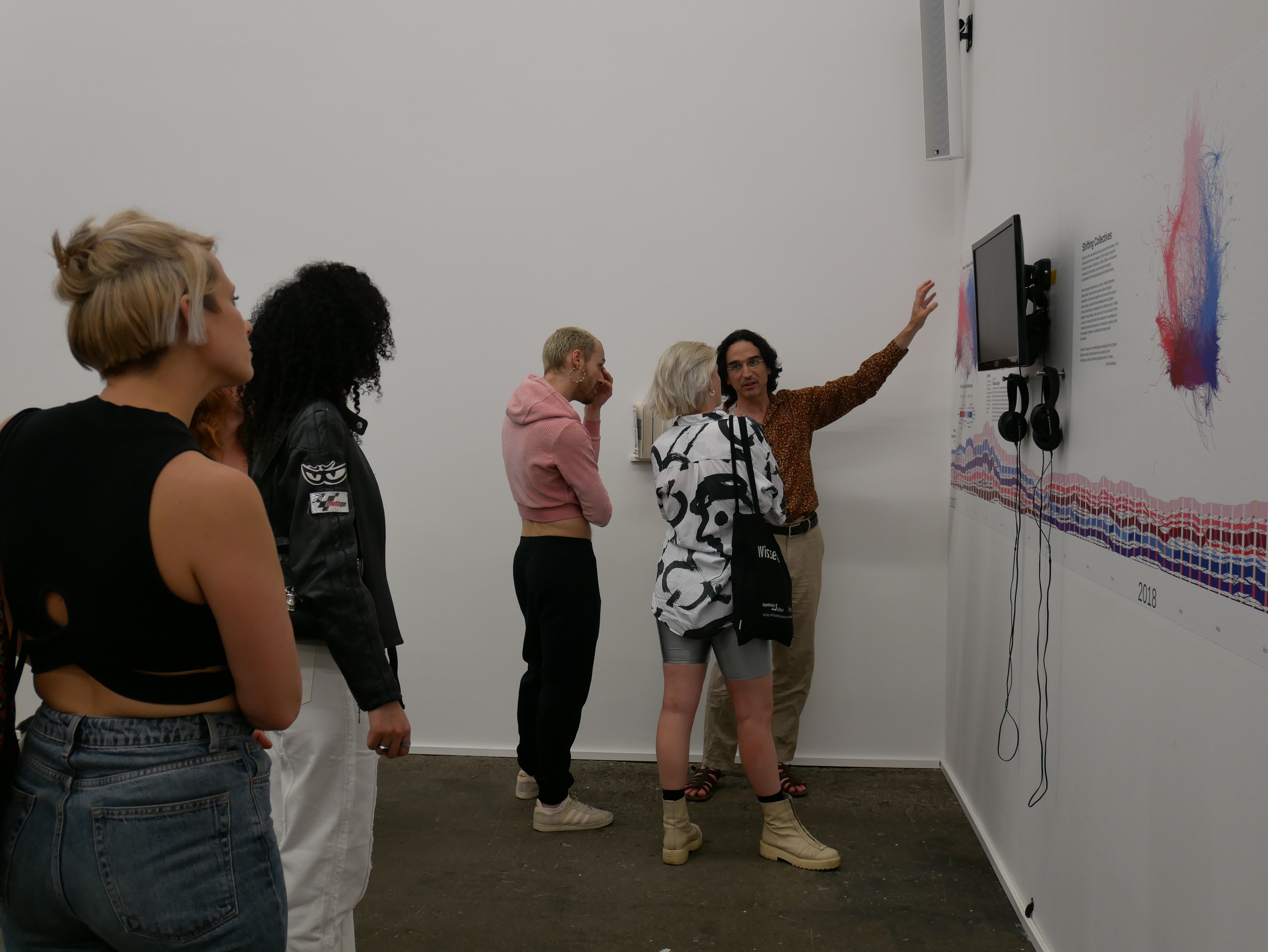David Chavalarias
Hamburger Bahnhof – Museum für Gegenwart – Berlin
Invalidenstraße 50–51, 10557 Berlin
Tue–Fri 10 am–6 pm, Thu 10 am–8 pm, Sat–Sun 11 am–6 pm, Mon closed
Limited wheelchair access
About Shifting Collectives
History is a flow channeled by social groups and their leaders. Understanding the groups we form, how they evolve, how we shape them and how they shape us in return is at the heart of the approach of David Chavalarias, researcher at the CNRS. This approach was originally rooted in the astonishment of extreme social events, such as the Rwandan genocide, during which a part of the population turned to pure violence against its fellow citizens.
From the Brexit to the events of January 6 at the Capitol, through the accession to power of Bolsonaro or Viktor d’Orbàn, we have been witnessing for some years a slow democratic disruption accompanied by the rise of populism and fascist thinking. Through an interdisciplinary approach, both scientific and sensitive, Collectives makes us perceive these invisible social and cognitive structures that shape our identities and our collective action, in order to provide us with the necessary reflexivity to understand the ongoing social decohesion.
By taking the last five years of the French political scene as a field of observation of this evolution, David Chavalarias gives us to see, through images, video and sound, the slow evolution of a democracy towards the trivialization of xenophobia and nationalist and extremist discourses. This work is based on the methodologies he is developing with his team at the Institut des Systèmes Complexes de Paris Île-de-France and the Politoscope, a device for observing political activism on Twitter based on the observation of hundreds of millions of social interactions. This macroscope, which offers an overhang on the collectives that animate our societies, makes tangible the tipping of the country of human rights into populism and the growing influence of extreme right-wing ideas on political debates.
Credits
Shifting Collective has needed the analysis of 500 millions tweets from the Politoscope project and the ISC-PIF’s Multivac platform to process them.
All images, videos and songs from David Chavalarias (2022) except:
- Introductory extract from “Dictators – Kim Jong-Un”, a deep fake from Represent.us.
- The alluvial graph has been made in collaboration with Victor Chomel and Maziyar Panahi at the Complex Systems Institute of Paris Île-de-France (CNRS). It is based on the methodology for reconstruction of online communities dynamics developped by the Politoscope project (Gaumont, Panahi & Chavalarias 2018).
Associated Scientific Publications
- Chavalarias, D., 2022. TOXIC DATA – Comment les réseaux manipulent nos opinions, Flammarion. ed.
- Gaumont, N., Panahi, M., Chavalarias, D., 2018. Reconstruction of the socio-semantic dynamics of political activist Twitter networks—Method and application to the 2017 French presidential election. PLOS ONE 13
- Chavalarias, D., Gaumont, N., Panahi, M., 2019. Hostilité et prosélytisme des communautés politiques. Reseaux n° 214-215, 67–107.
- Chavalarias, D., 2016. The unlikely encounter between von Foerster and Snowden: When second-order cybernetics sheds light on societal impacts of Big Data. Big Data & Society 3.
- Chavalarias, D., 2019. Les Formes de l’Intelligence Collective, in: Fleischer, A., Prochiantz, A. (Eds.), Le Rêve Des Formes. Arts, Sciences & Cie, Le Genre Humain. Paris, pp. 145–152.










